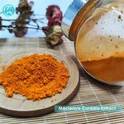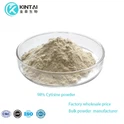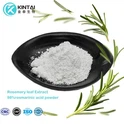Phosphatidylserine (PS) is a naturally occurring phospholipid nutrient that is highly concentrated in the brain. Research suggests PS may have a range of health and cognitive benefits, from supporting memory and mental clarity to regulating cortisol levels and aiding post-workout recovery. This article provides an overview of PS and its potential uses for cognitive support, mental health, sports performance, and age-related cognitive decline, based on information from the top 10 Google search results on the topic.
Understanding Phosphatidylserine (PS)
PS is a fatty substance and component of human cell membranes, particularly abundant in neural tissue. It plays an important structural role in the brain and is involved in communication between brain cells. PS helps maintain fluidity of cell membranes and regulate receptors and proteins embedded within the membranes. Through these mechanisms, PS impacts intercellular signaling, gene expression, and activation of enzymes that can influence cognition and other brain functions.
Supplementation with PS aims to replenish declining levels in the aging brain and support signaling processes involved in memory, focus, stress adaptation, and acquisition of knowledge and skills. Evidence suggests adequate intake of PS may have broad impact for long term neurological health.
Cognitive Support and Mental Health
Several studies found in the top Google search results suggest Phosphatidylserine Powder supplements may aid memory, learning, concentration, reasoning and other cognitive skills in both healthy adults and those experiencing age-related cognitive decline. Proposed mechanisms include supporting neuron signaling processes, growth of nerve endings, and connectivity between brain regions.
In a double-blind, placebo-controlled trial with 78 elderly participants diagnosed with age-associated memory impairment, 300mg PS supplementation daily for 12 weeks resulted in significantly improved performance on cognitive tests measuring factors like memory acquisition and recall, attention, concentration and higher executive functioning compared to placebo.
Additional research indicates PS may regulate cortisol secretion and support emotional well-being. Cortisol is released in response to stressors as part of the fight-or-flight response. While necessary short term, elevated cortisol over long periods damages brain cells and is linked to mood disorders. In a study of healthy young adults, 800mg of PS alleviated cortisol response to a physical stress test on a treadmill, suggesting PS helps modulate neurological pathways involved in the body's stress response.
PS supplementation has also demonstrated effectiveness at reducing symptoms of stress, anxiety and depression compared to placebo, potentially by buffering excitatory neurotransmitters and regulating cortisol levels. More research is still needed, but PS shows promise as a potential therapeutic for supporting mental health.
Sports Performance and Exercise Recovery
Through its effects on cortisol as well as mitochondrial function and nerve growth factors, Phosphatidylserine Powder shows potential to enhance athletic performance. PS is specifically concentrated in electrically active tissues like muscles and nerves, where it may impact tissue recovery and efficiency of oxygen utilization for energy production.
In a double-blind study, cyclists supplementing with 750mg PS daily demonstrated increased time trial performance and higher oxygen uptake compared to placebo. PS was also found to blunt exercise-induced spikes in cortisol levels post-workout. Attenuated cortisol response may aid muscle recovery, electrolyte balance and readiness for subsequent training sessions.
Moreover, by supporting nerve tissueexposed to mechanical stress during intensive training, PS may help maintain mental stamina, focus and motivation over periods of hard training - all important determinants of competitive performance outcome. More research is warranted, but PS shows initial promise as an ergogenic aid for athletic training and competition.
Age-Related Cognitive Decline
Age-related depletion of PS in the brain may be an important contributor to declining memory, reasoning, processing speed, attention and other cognitive functions that occur in older adulthood. Loss of PS in nerve cell membranes leads to structural changes that derail intercellular signaling, while increased inflammation and oxidative stress further damage PS reserves.
Research suggests PS could help slow or mitigate aspects of age-related cognitive decline. In a clinical trial, 497 elderly participants with Alzheimer's disease taking 300mg PS daily for 6 months showed improvements in cognition and daily functioning compared to placebo. PS supplementation may support nervous system cell health and integrity of signaling processes involved in learning, memory and higher thought.
PS also demonstrates neuroprotective qualities that could help combat pathology underlying dementia. As a membrane phospholipid with anti-inflammatory and antioxidant properties, PS guards against damaging free radicals and cytokines that contribute to neuron degeneration over time. More human research is needed, but PS supplementation shows promise for supporting neurological health in aging.
Scientific Evidence and Research
While many studies highlight the potential of Phosphatidylserine supplementation to benefit cognitive skills, mental health, sports performance and neurological aging, current research overall remains limited. Double-blind, placebo-controlled human trials specifically measuring effects of PS are still few. Proposed mechanisms of PS involving cortisol balance, mitochondrial efficiency, neuron conductivity and membrane fluidity require further elucidation as well.
Nonetheless, considerable animal research and some promising human studies suggest PS does play integral signaling roles across the central nervous system with broad impact on psychological and neurological function. Multiple randomized controlled trials demonstrate improved metrics of learning, memory, reasoning, attention, concentration, processing speed, mood balance, stress resilience and daily living skills in both healthy adults and clinical populations taking PS supplements.
Well-controlled human studies that further establish optimal dosing, quantify efficacy for specific applications, identify contraindications and interactions, and clarify underlying biological mechanisms of PS will help substantiate its therapeutic potential going forward. PS is generally well-tolerated with a low side effect profile, warranting continued research.
Safety and Precautions
Phosphatidylserine Powder is a natural component of human cell membranes, but individuals should take some basic precautions when considering PS supplementation:
- Potential Side Effects: Rare side effects reported may include insomnia, stomach upset and headaches when dosing up to 500mg daily.
- Interactions: Additive effects could occur if taking PS with medications for Alzheimer's, depression or hypercoagulation issues. Check with your doctor.
- Medical Conditions: Safety has not been established for pregnant women, those trying to conceive or breastfeeding mothers. Individuals with bipolar disorder should avoid PS due to possible manic symptoms.
- Dosage: Recommended dosing ranges between 100-500mg daily. Effects differed in studies using 300-800 mg doses, indicating need for more precision on ideal concentrations. Start low under medical guidance.
Researchers concluded minimal toxicity for short term PS intake up to 500mg daily. Mild side effects typically resolved quickly upon discontinuation. Monitor individual tolerance and consult a healthcare provider with questions.
Conclusion
In summary, growing research highlights the potential for supplemental phosphatidylserine to benefit brain health and function in various ways. PS plays a foundational biochemical role within brain cell membranes. Supplementation may replenish declining reserves associated with age to support nervous system structure and signaling processes integral to cognitive skills, stress adaptation, mood balance, and neurological health over the lifespan.
While many studies show promise, conclusive evidence is still limited overall. Large scale, replicable human trials that further quantify efficacy, establish ideal dosing, and clarify biological actions of PS supplementation can help verify its therapeutic relevance going forward. Consult a qualified healthcare practitioner for guidance on whether phosphatidylserine aligns with your health goals.
Our Phosphatidylserine Powder Bulk has received unanimous praise from customers. If you would like to know more about this product, please feel free to contact Sales@Kintaibio.Com.
References
Kato- Kataoka,A., Sakai,M., Ebina,R., Nonaka,C., Asano,T., & Miyamori,T.( 2010). Soybean- deduced phosphatidylserine improves memory function of the senior Japanese subjects with memory complaints. Journal of Clinical Biochemistry and Nutrition, 47( 3), 246 – 255.
Parker,A.G., Gordon,J., Thornton,A., Byars,A., Lubker,J., Bartlett,M., & Byrd,M.( 2011). The goods of IQPLUS Focus on cognitive function, mood and endocrine response before and following acute exercise. Journal of the International Society of Sports Nutrition, 8, 16.
Richter,Y., Herzog,Y., Lifshitz,Y., Hayun,R., & Zchut,S.( 2013). The effect of soybean- deduced phosphatidylserine on cognitive performance in senior with private memory complaints a airman study. Clinical Interventions in Aging, 8, 557 – 563. https//doi.org/10.2147/CIA.S40348
Kingsley,M.I., Wadsworth,D., Kilduff,L.P., McEneny,J., & Benton,D.( 2005). goods of phosphatidylserine on oxidative stress following intermittent handling. Medicine and Science in Sports and Exercise, 37( 8), 1300 – 1306.
Crook,T.H., Tinklenberg,J., Yesavage,J., Petrie,W., Nunzi,M.G., & Massari,D.C.( 1991). goods of phosphatidylserine in age- associated memory impairment. Neurology, 41( 5), 644 – 649.
Jäger,R., Purpura,M., Kingsley,M.( 2007). Phospholipids and sports performance. Journal of the International Society of Sports Nutrition, 4( 1), 5.







